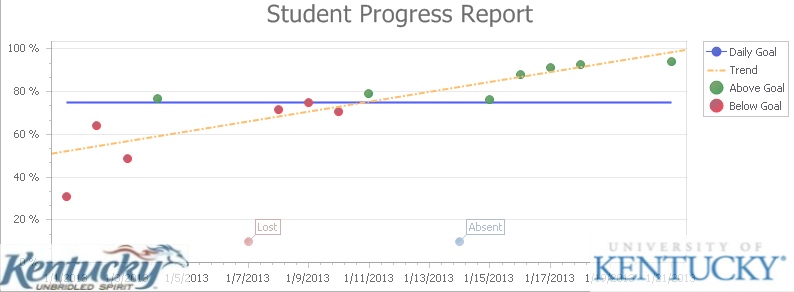Working to make a difference for children
who display challenging behavior
The School Discipline Advisor High Stakes Tests: Eight tips to prepare students for high-stakes tests
By Beverley H. Johns *
Just as we teach reading, writing and arithmetic
skills, we need to teach children how to prepare and take tests.
Students with emotional and behavioral problems may be able to score high
on these tests if they are prepared to take them. It is our job as educators
to get them ready.
Here are some recommendations for getting kids ready:
1. Provide practice tests. We gained skills in reading by being
taught and by practicing our reading. Children have to practice taking
tests.
As part of these exercises, we need to teach them how to carefully read
directions. We need to teach them how to look for key words in the directions.
We need to teach them to scan the test for easy questions for which they
may immediately know the answer.
2. Emphasize not giving up. One observation I made while working
with students with emotional and behavioral challenges was that they would
easily give up.
If they got to question three and could not do it, they would stop and
go no further. Students need to be taught that if they come to a question
for which they don’t know the answer, they should move on to the
next questions and then return to the hard one later.
3. Give timed tests. Taking timed tests is something that the teacher
can prepare students for by giving them so many practice questions each
day, setting a timer, and then seeing if they can beat the previous day’s
record.
Students can even graph their progress on completing the questions within
the time frame. While stressing completion within a time limit, it is
important to also graph progress on the number of questions that students
answered right.
Make it a contest for the student. I am always reminded of working with
Andrew, who was bright but extremely work-resistant. I would challenge
him by saying, “I bet you can get that done within five minutes.”
Andrew was going to prove that I was wrong—he would do it even quicker.
4. Teach students test-taking strategies. Frender (1990) outlines
some “intelligent guessing strategies” to assist students in
taking tests. One of my favorite strategies to use with students is PIRATES.
The strategy is appropriate for objective tests and the letters stand
for:
P- Prepare to succeed-put your name and PIRATES on the test. Make affirmations.
I- Inspect the instructions.
R- Read, remember, reduce
A- Answer or abandon
T- Turn back
E- Estimate. Avoid absolutes, choose the longest or most detailed choice, and eliminate similar choices.
S- Survey.
This strategy comes from the 1996 book, Teaching Adolescents with Learning
Disabilities, by D. Deshler, E. Ellis, and B. Lenz. The book also outlines
other test strategies. PIRATES is one I have found motivating for students
with emotional/behavioral disorders.
5. Prepare students to deal with test anxiety. Teach students relaxation
techniques such as breathing and thinking happy thoughts. Teach them to
engage in positive self-talk, such as, “I can do this.”
One of the techniques that author Tanis Bryan researched is to have the
student, immediately prior to beginning the task, close her eyes for 45
seconds to a minute and think of something that makes her happy. The results
of studies on this technique conducted with children with learning disabilities
and behavior disorders and normally achieving students have shown that
this technique has significant positive effects on students’ social
problem-solving, performance and learning.
6. Make test settings as pleasant as possible. Having plants in
the environment, whether real or silk, can make a sterile environment
look more inviting. Allow students to have water bottles. Make sure chairs
are comfortable. Teach students to angle the test on their desks at a
comfortable position.
7. Involve students in accommodation discussions in the individualized
education program. Students, particularly by age 10 – and some
even younger, can provide us with valuable input on what accommodations
they prefer and may need.
8. Plan a special activity after tests are over. Many of us reward
ourselves by doing something that we like to do after we have completed
a difficult activity. Involve students in the planning of the special
activity or event so they have something to look forward to after the
testing situation.
*Beverly Johns is a learning and behavioral consultant with more than
30 years experience working with student with severe behavioral disorders.
She is president of the Learning Disabilities Association of Illinois.
Reach Beverly Johns at bevjohns@juno.com.
Reprinted with permission from The School Discipline Advisor. Copyright 2003 by LRP Publications, 747 Dresher Road, P.O. Box 980, Horsham, PA 19044-0980. All rights reserved. For more information on products published by LRP Publications, please call toll-free 1-800-341-7874, ext. 275 or visit the Discipline & Violence Prevention section under General Education on http://www.shoplrp.com/ for more information on LRP Publications’ discipline, school safety and violence prevention publications.
